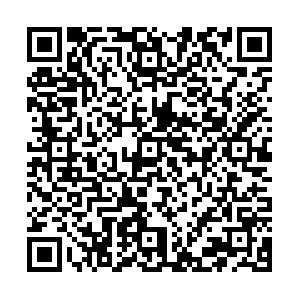Studies on the Intention Use of Diabetes Personal Management Application and Related Factors
-
摘要:
目的 了解社区糖尿病个人管理应用程序的使用意向以及相关因素进行分析。 方法 以社区糖尿病患者为研究对象,采取随机抽样的方法,使用糖尿病个人管理应用程序使用意向量表,糖尿病电子健康素养量表,糖尿病自我管理能力量表以及一般资料问卷进行调查。 结果 286例社区糖尿病个人管理应用程序使用意向得分为(44.38±8.56)分,合格率67.4%,糖尿病电子健康素养得分(22.38±7.56)分,合格率28.2%,糖尿病自我管理能力得分(43.41±7.96)分,通过分析发现糖尿病个人管理应用程序使用意向、电子健康素养和自我管理能力均受患者文化程度、年龄、收入的影响,相关因素分析显示糖尿病个人管理应用程序使用意向与患者的电子健康素养及自我管理能力呈正相关(P < 0.05)。 结论 社区糖尿病个人管理应用程序使用意向受收入、文化程度、年龄、电子健康素养及自我管理能力的影响,糖尿病患者电子健康素养及自我管理能力总体水平偏低,应提高糖尿病患者电子健康素养及自我管理水平。 Abstract:Objective To understand the intention of the community diabetes management application and analyze the related factors. Methods Diabetes patients in the community were selected as the research objects, and the diabetes management application intention scale, diabetes electronic health literacy scale, diabetes self-management ability scale and general information questionnaire were randomly conducted for the investigation. Results The score of 286 cases of community diabetes management application intention was 44.38 ± 8.56, the qualification rate was 67.4%, the score of diabetes e-health literacy score was 22.38 ± 7.56, the qualification rate was 28.2%, and the score of diabetes self-management ability score was 43.41 ± 7.96. Through the analysis, it was found that diabetes management application intention, e-health literacy, and self-management ability were affected by patients' education, age, and income. The analysis of related factors showed that the intention to use the diabetes management application was positively related to the electronic health literacy and self-management ability of patients P < 0.05. Conclusion The intention to use community diabetes management application is affected by income, education level, age, e-health literacy and self-management ability. The overall level of e-health literacy and self-management ability of diabetes patients is low. It is necessary to improve the e-health literacy and self-management level of diabetes patients. -
Key words:
- Diabetes management /
- Application program /
- Intention to use /
- Related factors
-
表 1 调查人群的基本特征[($\bar x \pm s $),$ {\text{分} }$]
Table 1. Basic characteristics of the surveyed population[($\bar x \pm s $),points]
项目 人数(n) 应用程序
使用意向得分t/F P 电子健康
素养得分t/F P 自我管理
能力得分t/F P 性别 0.799 0.213 1.417 0.085 1.528 0.064 男 147 44.63±7.31 21.78±6.56 43.73±7.24 女 139 43.94±7.29 22.93±6.89 42.24±9.18 年龄(岁) 19.203 <0.001* 23.967 <0.001* 25.193 <0.001* 18~45 65 45.71±8.53 24.87±7.26 46.71±8.67 45~65 102 44.64±8.25 22.73±6.79 44.78±8.34 >65岁 119 39.25±7.17 18.26±6.23 38.75±7.67 婚姻状况 0.907 0.183 1.460 0.073 1.421 0.078 已婚 198 44.76±7.98 23.33±6.34 44.26±7.98 未婚/离婚 88 43.85±7.48 22.15±6.23 42.85±7.18 文化程度 24.961 <0.001* 27.693 <0.001* 29.521 <0.001* 初中及以下 134 39.25±6.74 17.67±6.36 37.87±6.94 高中/中专 86 44.78±7.31 22.73±6.79 43.23±7.46 大专及以上 66 45.57±7.31 24.36±7.14 45.45±7.23 既往病史(a) 0.318 0.728 2.205 0.112 1.633 0.197 <1 56 43.84±7.34 21.34±6.96 43.54±7.67 1~5 137 43.38±7.45 22.32±7.19 42.67±7.54 >5 93 42.87±7.21 23.72±6.74 41.37±7.18 并发症 2.847 0.002* 1.468 0.716 4.065 <0.001* 有 198 44.75±7.78 23.13±6.89 44.78±7.56 无 88 41.96±7.34 21.86±6.43 40.86±7.45 平均月收入(元) 10.460 <0.001* 22.427 <0.001* 8.262 <0.001* <1000 46 38.75±6.78 16.37±6.36 38.82±6.94 1000~3000 149 43.36±7.35 21.68±6.79 42.97±7.24 >3000 91 44.84±7.87 24.72±7.32 44.14±7.71 *P<0.05。 表 2 调查人群的调查量表各维度得分情况[($\bar x \pm s $),$ {\text{分} } $]
Table 2. Scores of various dimensions of the survey scale for the surveyed population[($\bar x \pm s $),points]
项目 条目数数 得分 各条目平均分 电子健康素养总分 8 22.38±7.56 2.84±1.34 应用能力 5 14.83±6.45 2.76±1.21 评判能力 2 5.79±2.14 2.67±1.15 决策能力 1 2.93±1.25 2.93±1.25 应用程序使用
意向总分18 44.38±8.56 2.61±1.67 绩效期望 7
720.83±6.45 2.93±1.27 努力期望 6 13.79±2.14 2.39±1.23 社会影响 5 10.93±1.25 2.23±1.25 糖尿病自我
管理能力得分11 43.41±7.96 3.64±1.84 饮食管理 4 15.63±1.84 3.96±1.64 运动管理 2 8.64±1.93 3.95±1.15 用药管理 1 3.78±1.54 3.78±1.54 血糖检测 2 7.34±1.46 3.61±1.13 足部护理 2 7.22±1.28 3.54±1.13 表 3 糖尿病个人管理应用程序使用意向的相关性分析
Table 3. Correlation analysis of diabetes personal management application use intention
项目 r P 电子健康素养总分 0.847 <0.001* 应用能力 0.821 <0.001* 评判能力 0.765 <0.001* 决策能力 0.732 <0.001* 糖尿病自我管理能力得分 0.768 <0.001* 饮食管理 0.745 <0.001* 运动管理 0.673 <0.001* 用药管理 0.543 <0.001* 血糖检测 0.448 <0.001* 足部护理 0.507 <0.001* *P<0.05。 表 4 各自变量赋值
Table 4. Assignments of individual variables
自变量 赋值 年龄(岁) 35~49=1,50~65=2,>65=3
男婚姻状况 已婚=1,未婚/离婚 性别 男=1,女=2 文化程度 初中及以下=1,高中及中专=2 家庭收入(元) 1000以下=1,1000~3000,3000以上=3 糖尿病病程(a) <1=1,1~5=2,>5=3 并发症 有=1,无=2 因变量(分) 程序使用意向<42=0,程序使用意向>42=1 表 5 糖尿病个人管理应用程序使用意向影响因素的二元Logistic回归分析
Table 5. Binary logistic regression analysis on the influencing factors of diabetes personal management application use intention
影响因素 β SE Wald χ2 OR 95%CI P 文化程度 0.345 0.123 7.867 1.412 1.110~1.797 0.005* 家庭收入 0.456 0.223 4.181 1.578 1.019~2.443 0.041* 年龄 0.393 0.130 9.139 1.481 1.148~1.911 0.003* 并发症 0.245 0.087 7.930 1.278 1.077~1.515 0.005* 电子健康素养 0.329 0.102 10.404 1.390 1.138~1.697 <0.001* 自我管理能力 0.342 0.099 11.934 1.420 1.159~1.709 <0.001* *P<0.05。 -
[1] Wang L,Gao P,Zhang M. Prevalence and ethnic pattern of diabetes and pre-diabetes in China in 2013[J]. JAMA,2017,317(24):2515-2523. doi: 10.1001/jama.2017.7596 [2] Norris S L,Engelgau M M,Venkat Narayan K M. Effectiveness of self-management training in type 2 diabetes: A systematic review of randomized controlled trials[J]. Diabetes Care,2001,24(3):561-587. doi: 10.2337/diacare.24.3.561 [3] 胡彩红,张梅,张笑,等. 中国35岁及以上糖尿病患者社区管理现状[J]. 中国慢性病预防与控制,2021,29(4):264-267. [4] 汪叶青,张春槐,黄曙锋. 老年2型糖尿病并发症发生情况及其影响因素分析[J]. 北京医学,2022,44(3):269-272. [5] 田亚利,侯敏燕,樊宁. 基于互联网的健康管理对糖尿病患者自我效能及自我管理能力的影响[J]. 山西医药杂志,2022,51(10):1168-1170. doi: 10.3969/j.issn.0253-9926.2022.10.027 [6] 刘金萍,韩琳,丁红英,等. “互联网+”三级联动管理模式对糖尿病患者及其家庭成员自我管理能力的影响[J]. 中国护理管理,2022,22(5):755-760. doi: 10.3969/j.issn.1672-1756.2022.05.023 [7] Sun C,Sun L,Xi S,et al. Mobile phone-based telemedicine practice in older Chinese patients with type 2 diabetes mellitus: Randomized controlled trial[J]. JMIR MHealth UHealth,2019,7(1):e10664. doi: 10.2196/10664 [8] 牟丽,夏英华,何群,等. 糖尿病患者移动健康服务使用现状及影响因素分析[J]. 华南预防医学,2020,46(3):219-222. [9] 赵能江,张智海,陈薇,等. 《中国2型糖尿病防治指南(2020年版)》亮点解读及糖尿病中医指南分析[J]. 中国中西医结合杂志,2021,41(6):652-655. [10] 卞毛毛,宋健,王文娟,等. 糖尿病应用程序使用意向量表的编制[J]. 中华全科医学,2020,18(9):1577-1580. [11] Norman C D,Skinner H A. eHEAIS: The ehealth literacy scale[J]. J Med Internet Res,2006,8(4):e27. doi: 10.2196/jmir.8.4.e27 [12] 郭帅军,余小鸣,孙玉颖,等. eHEALS健康素养量表的汉化及适用性探索[J]. 中国健康教育,2013,29(2):106-108,123. [13] 张永叶. 中文版老年2型糖尿病自我管理行为量表的信效度分析[J]. 护理实践究,2020,17(9):5-7. [14] Li X W,Li T,Chen J Y,et al. A WeChat-based self-management intervention for community middle-aged and elderly adults with hypertension in Guangzhou,China: A cluster-randomized controlled trial[J]. Int J Environ Res Public Health,2019,16(21):4058. doi: 10.3390/ijerph16214058 [15] 孙燕茹,聂礼贺,陆召军,等. 徐州市糖尿病病人对“互联网+医疗健康”管理模式的接受情况及影响因素的调查[J]. 安徽医药,2020,24(4):751-755. [16] 邓子豪,陈志锋,曾淼坤,等. 武汉市患者移动医疗服务使用意愿及影响因素研究[J]. 中国卫生统计,2020,37(2):206-209. [17] 郑传芬,武书兴,窦雄,等. 构建“互联网+健康教育”社区糖尿病三级联动理新模式[J]. 健康教育与健康促进,2022,17(1):89-92. [18] 李昂,郭晓蕙,张俊清. 互联网 + 糖尿病共同照护模式的线上自我管理支持对规律复诊2 型糖尿病患者代谢指标影响的研究[J]. 中国糖尿病杂志,2021,29(4):275-278. [19] 许卓帆,郑韶欣,冯小倩. 广州市高血压患者“互联网 +”社区健康管理接受情况及其影响因素[J]. 中国公共卫生,2020,36(5):706-709. doi: 10.11847/zgggws1123970 [20] 张霞,冯世平,曾书萍,等. 2型糖尿病患者电子健康素养与自我效能感及自我管理行为的现状及相关性分析[J]. 现代临床医学,2022,48(3):170-174. [21] 杨宝顺,马先莹,韩春蕾,等. 新冠疫情背景下居民对互联网医疗平台的需求现状及影响因素分析[J]. 中国卫生统计,2022,39(6):824-829. [22] 吴延莉,夏云婷,李剑虹,等. 北京市朝阳区糖尿病患者糖尿病管理APP使用现状及影响因素研究[J]. 中国慢性病预防与控制,2019,27(5):331-335. [23] 滕智裕,陶美伊,郭晨曦,等. 长沙地区冠心病患者电子健康素养与自我健康管理行为的相关性分析[J]. 湖南师范大学学报(医学版),2023,20(3):164-168. [24] 嵇加佳,刘林,楼青青,等. 2型糖尿病患者自我管理行为及血糖控制现状的研究[J]. 中华护理杂志,2014,49(5):617-620. doi: 10.3761/j.issn.0254-1769.2014.05.026 [25] 卫薇,刘敏,高峰. 我国3省社区糖尿病患者自我管理能力现状研究[J]. 中国健康教育,2021,37(7):602-605. [26] 黄艳玲,顾则娟,孙国珍,等. 慢性心力衰竭患者健康信息素养与自我管理行为及生活质量的相关性[J]. 实用临床医药杂志,2022,26(10):105-110,119. doi: 10.7619/jcmp.20220636 -





 下载:
下载: 
